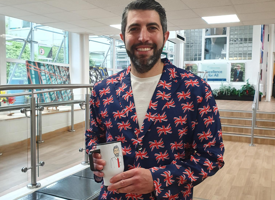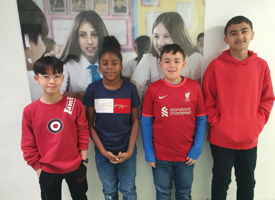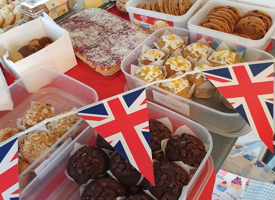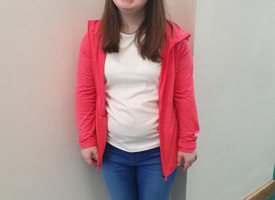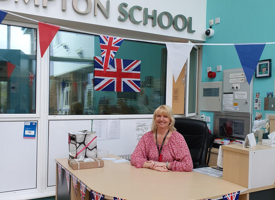Spotlight on...Coronation Celebrations!
Posted on: 05/05/2023Staff and students at The Compton School have been joining the nation in marking the coronation of King Charles III; for many, this is an event that happens once in a lifetime and, as a school, we wanted to give our students the chance to celebrate the crowning of the King as well as taking the opportunity to explore some of the views that many people share about the monarchy.
School Celebrations: Bring out the Bunting!
Decorations, non-uniform day, a special menu – these are just some of the ways that students have celebrated in school. Ms Nelson did a royal job of decorating the reception area with bunting and a Union Jack flag on display and a ‘Coronation quiche’ was enjoyed by many in the café.
But we wanted to make sure that this was not just about the pomp and pageantry this Coronation Weekend: students also learnt about the life and times of Kind Charles III. From his birth and education to his charitable legacy, students had an informative personal development session where they considered what a coronation means and how it would be celebrated. They also reflected on if they would be celebrating the event this weekend and if so, how?
A Historicist Approach
Charlotte Maginnis shares why, historically, the event is so significant and how we can encourage our students to think critically about national events.
There have been 62 monarchs of England and Britain spread over a period of approximately 1200 years. These monarchs, their lives and actions, make up a significant proportion of the history curriculum at all key stages that students in the UK learn about today.
Therefore, love the monarchy or not, the crowning of King Charles III on Saturday May the 6th is something of profound historic significance. The crowning of a monarch, also a deeply religious occasion, is likened to a wedding by some, but instead of a husband or wife, the monarch is marrying the state: rings, promises and oaths of allegiance all included.
The last coronation that took place in this country was 70 years ago. The announcement, prior to Queen Elizabeth’s Coronation in 1953, that the event would be on television lead to the sales of the television set rocketing. It was the Coronation of Queen Elizabeth II that did more than any other even to make television a mainstream medium, with more than 20 million people watching it and outnumbering the radio audience for the first time in history. This clearly demonstrates that events in history are not simply moments in time but have far reaching and lasting impact over time.
‘Why are events significant?’
Questions are frequently posed in history lessons in school, and it may be something as parents and carers you would like to explore with your children over the coronation weekend. The ‘why things happen?’ and ‘why they are significant?’ questions are often more challenging than ‘what and when?’ and it is when our students can explore and debate the ‘why’ that notable learning takes place.
This weekend’s events may present a good opportunity for families to gather, discuss, and possibly debate the ins and outs and constitutional monarchy, or failing all that, to simply enjoy the ceremony and a slice of Victoria sponge cake (preferable to the Coronation quiche)!
However you are choosing to mark the occasion this weekend, we wish our staff, students and families a restful Bank Holiday weekend.
